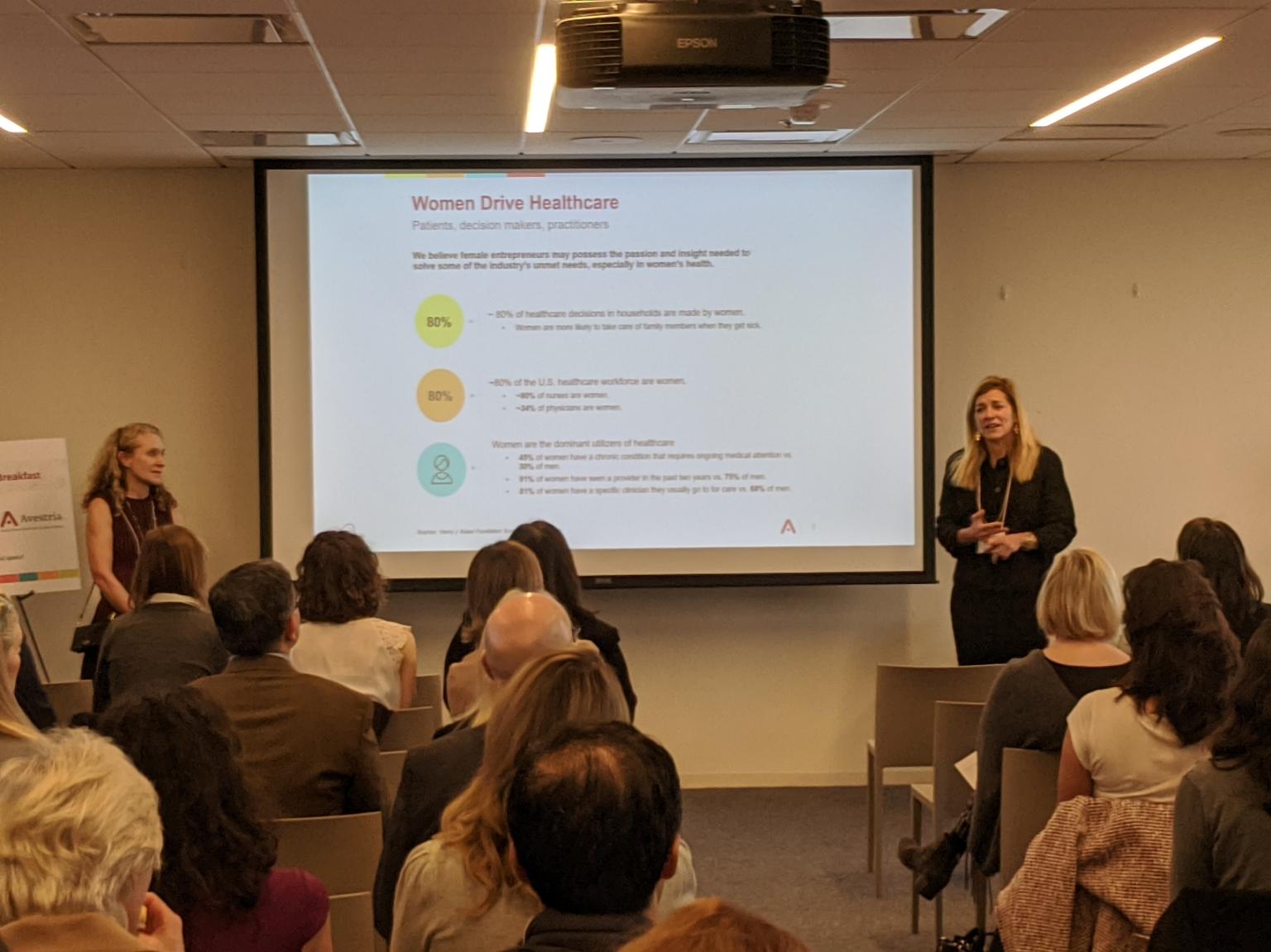NVCA Member Spotlight: Avestria
Welcome to our Member Spotlight series where we give a profile overview of our many diverse members. For this deep dive, we spoke to Linda Greub, Co-Founder & Managing Partner of Avestria.
 Tell us about your firm. What makes it different?
Tell us about your firm. What makes it different?
Avestria is a venture capital firm that invests in early-stage (usually Seed and Series A) women’s health and female-led life science ventures. We define “women’s health” as issues that affect women exclusively, disproportionately, or differently from men, not solely reproductive health issues.
Unique within the venture community, Avestria’s two co-founders – and Harvard Business School classmates – Corinne Nevinny and I each bring 30+ years of healthcare investment and operating expertise, as well as our extensive life science industry networks, to Avestria.
Where did your firm’s name come from?
“Avestria” is based on two words: the word “invest” and the Sanskrit word for girl/woman. Those two words together summarize our general mission: to invest in women (both female founders and women’s health ventures).
What defines your portfolio?
Our portfolio companies have to meet several clinical and commercial factors. First, they need to be a women’s health or female-led life science company addressing an unmet need. They also need to have clinical evidence, IP or sustainable competitive advantage, a cost-saving or cost-neutral solution, a management with healthcare experience, a clear regulatory path, and a clear case for reimbursement, among others. We don’t invest in early-stage therapeutics and we tend not to invest in consumer products unless they have clinical evidence behind them.
Currently, our portfolio consists of nine companies, which encompass devices, services, research tools, and one consumer company. About half are addressing a women’s health issue and the other half are female-led companies addressing a universal health issue or need (such as genetic testing or time- and cost-saving specimen collection vials). Two-thirds have female founders and/or CEOs while the remaining have a male founder and/or CEO. If you’re interested in learning more about a specific portfolio company, you can read our Under the Microscope series in which we’re publishing a post about each one.
How is the firm different today than when you first started?
Avestria is a relatively young firm: it started in July 2019. Since then, our due diligence process has become increasingly rigorous. Because of the team’s extensive backgrounds in healthcare, we can, and will, ask a lot of questions, review data and clinical evidence, and get involved – and, with every company that comes through our pipeline, we both learn more about specific healthcare issues and add to our list of due diligence questions.

Why is your firm a part of NVCA?
Venture can be a small world – but, in our experiences, it can also be a very collaborative one. Through its events, resources, even through its nominations to highlight deserving VCs or startups, NVCA allows us to access and to expand our community – and to give back to it as well.
Tell us about the current VC landscape in your geography/region.
Venture capital has traditionally been a male-dominated space. Even now, about 87% of VC decision makers are male. We’ve seen a number of women trying to change that narrative. More female VCs can only help female entrepreneurs; VC firms with female partners/decision-makers are 3x more likely to invest in a company with a female CEO than all-male VC teams are.
In terms of our investment space, we think more and more people are starting to realize the investment opportunity in women’s health (commonly referred to as “femtech”). If women’s health affects half the population directly and half the population indirectly, why is only 4-7% of R&D funding targeting women’s health products and services? If female-led businesses perform better than all-male teams in terms of revenue generated ($0.78 revenue generated per dollar raised vs. $0.31), ROI (35% higher) and valuations (63% higher), why do female founders consistently receive less than 3% of total venture capital dollars? We believe women’s health is ripe for innovation and investment, and we’re hoping that the interest in and amount of capital backing these ventures continues to rise.
What’s ahead for your firm in 2021?
Our first fund is set to have its final close at the end of January, and we’re looking forward to building off that momentum for Fund II. In terms of our portfolio companies, many of them hit significant milestones this year (such as Alydia Health, which received FDA clearance in September 2020 for its device to stop postpartum hemorrhaging), and we think that 2021 will be a big year for them. We’re excited to see and be part of their progress!
Describe your firm’s culture in 5 words or less.
Experienced, evidence-driven, independent, strategic, transparent.
https://nvca.org/wp-content/uploads/2019/06/42865ff45b916762c541e2bffe9fa791b4165a45.png
0
0
Cassie Ann Kiggen
https://nvca.org/wp-content/uploads/2019/06/42865ff45b916762c541e2bffe9fa791b4165a45.png
Cassie Ann Kiggen2021-01-14 01:57:362021-01-14 02:10:46NVCA Member Spotlight: Avestria
